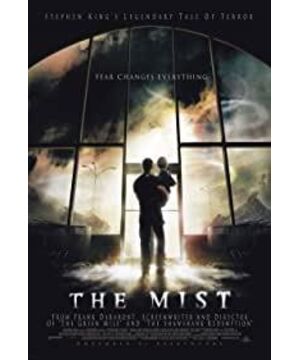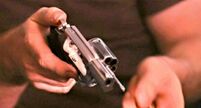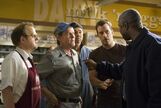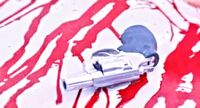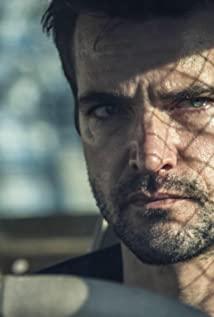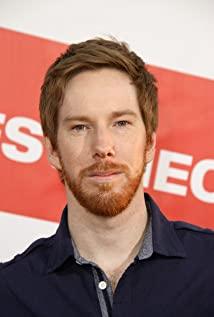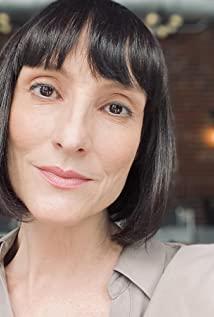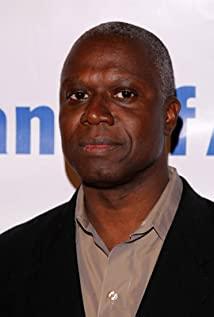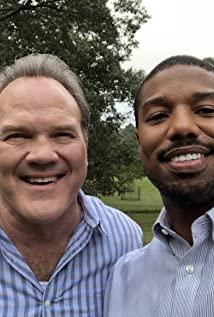There is also the black lawyer. The part where he quarreled with the hero and others in the supermarket also reflected some problems. He could almost point out the reasons why everyone who persuaded him to believe that there were monsters targeted him. In his eyes, people said to him. There are monsters for a reason, some people have fantasies because they are too scared, some people are not friendly to him because they have a holiday with him, and some people lie to him because he is a foreigner. In short, he only trusts his own judgment. And that made him the savior of a group of people who chose to believe that he followed him out of the supermarket, only to be eaten.
In addition, there is a short discussion on the nature of human nature in the middle of the film. The woman who has been helping the male protagonist hold his son believes that human nature is inherently good. Others have refuted her to varying degrees. a feeling of. Seeing this, maybe some people will think about this issue in their own hearts, and they will even be shaken by the words of a few people. Human nature is inherently good. Is this true? Maybe many people will have such doubts when they see this part. However, even though this woman thought what other people said was incredible, she still insisted on her own opinion. Human nature is good. After seeing it, I think this is a foreshadowing.
Until the hero shot at the end, I thought that what the film wanted to show was the beauty, ugliness, good and evil of human nature. After the hero shoots, the film will end in a few minutes. According to the previous routine, the protagonist failed to make it to the end of the film. Half of the time, I found a solution to the monsters, even if there was a clue, it was basically unlikely to be a heroic ending. I thought there would be an incomplete ending. The male protagonist went out and was eaten by monsters, and let the audience imagine the supermarket for themselves. People have no tragic scene of life. But it was in the last few minutes that the ending suddenly became clear, the army came, rescued the people and dispelled the fog. The director also specially arranged for the short-haired woman who was the first to get out of the supermarket and survived to stimulate the hero. This woman who disregarded the danger and cursed others survived like this, but the hero went through untold hardships and finally did it by herself. He shot his companion and his own son. At this moment, the remorse and despair of the hero can be magnified countless times by the audience's imagination. It is precisely because of this contrast that the director has achieved the ultimate goal of the film. Maybe everyone will think when he sees it here. How nice would it be. Yes, it would be great if he didn't act so fast. Originally, the last four adults should be worthy of praise. Needless to say, the male protagonist is a typical positive hero image from beginning to end. The woman She has always insisted on the goodness of human nature and has always protected her son for the hero. Letting her live to the end may be a hint of approval. The old lady was the first to refute the crazy woman. The canned food hit her on the head, and even scolded her righteously. After the hero said that he was leaving the supermarket, the old grandmother immediately stated that he wanted to go with him. These clips reflect the brave side of a person, even if he is very old, This kind of bravery is still worthy of recognition, so the old grandmother also lived to the end. Another man who survived was the first to discover that there were monsters in the fog, and he was fighting actively and effectively from beginning to end. Perhaps this It is the reason for arranging for him to live to the end. The image of the male protagonist's son as a child symbolizes innocence and purity. The child's fear and seeking asylum are direct and simple. His weakness makes him protected, and then Live to the end. These four people were supposed to be kind and rewarding, but they all died in the end, and they were shot and killed by the hero himself. I think this effect can be said to increase the price of despair many times. In the film, the three of them The days and nights of escaping from death were all in vain because of a moment of despair. After the car turned off and the monster passed by, everyone's eyes were full of despair. The hero took out his gun, and the other three adults understood. his intention , No one raised any objection, and a moment of despair made their desire for life tossed away. The male protagonist loaded the bullet and pulled the trigger very quickly, so in exchange for the huge remorse after the fog cleared. I think this remorse should be followed by even more despair. My wife died and my son was killed by myself. Should I give up on myself again? But will life turn around again like this? Obviously, in front of the male protagonist, another fog descended.
PS: I also have a spoofed interpretation of the ending. The army at the end obviously means that the US imperialists no longer believe in individual heroism. To put it in a sentence with the characteristics of the celestial dynasty, they still have to believe in the people's army and the government and the party!
View more about The Mist reviews


